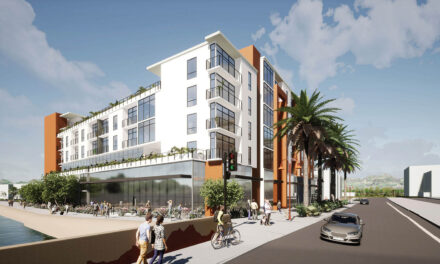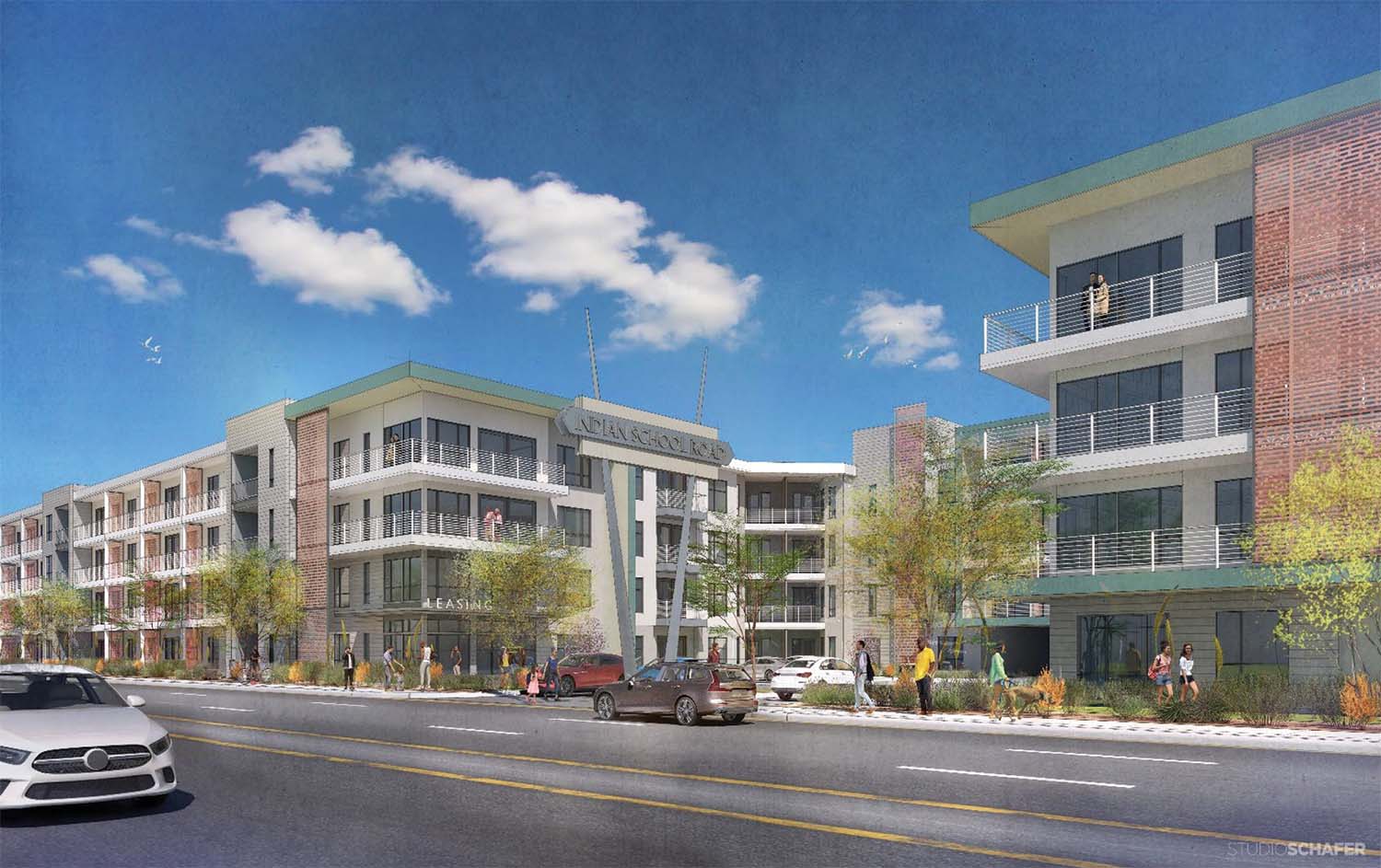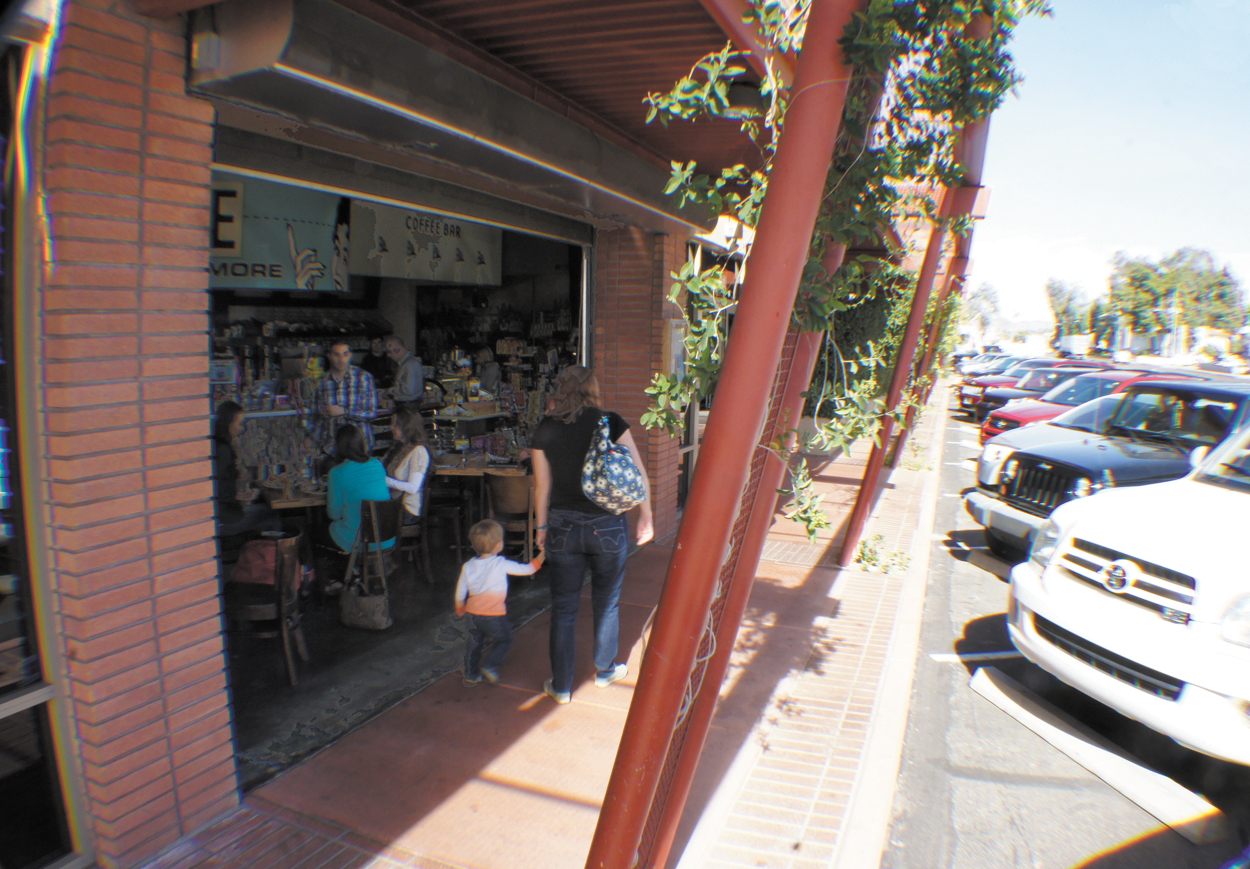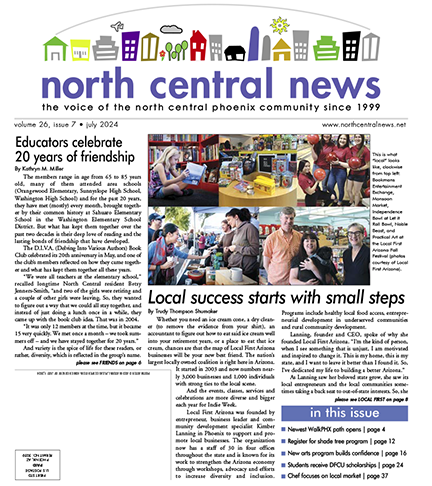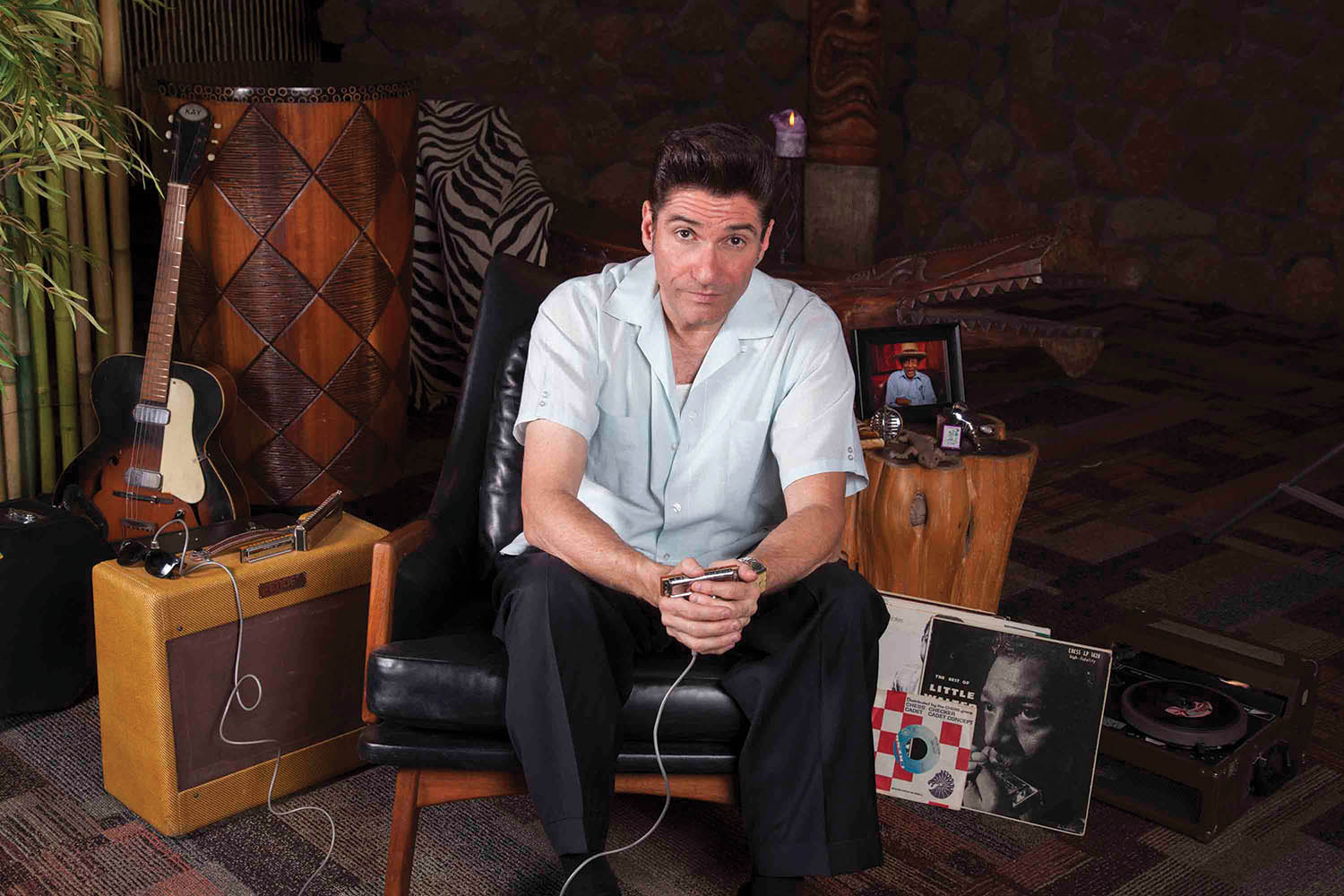
Chicago blues harmonica musician, North Central Phoenix club owner and radio host Bob Corritore has been helping keep blues music alive in the Valley, and beyond, since his arrival in 1981 (photo by Dave Blake).
“They say that the key to happiness, is making the music louder than the chaos.” A fitting statement for the times we live in from Bob Corritore — blues enthusiast, historian, preservationist, ambassador, performer and someone who has been bringing music to the Valley since his arrival in 1981.
Born in Chicago and raised in the suburb of Wilmette, at the age of 12 or 13, Corritore heard Muddy Waters, often called the Father of Chicago Blues, and it was life-altering.
“After hearing Muddy Waters, that was my North Star — that was the direction of my life from that point forward,” Corritore said.
In Chicago, blues music was everywhere.
“As a matter of fact, the very first blues show that I saw was at my high school auditorium, the Sam Lay Blues Revival. It was like an all-star review of blues artists. And I would give my junior theme on Muddy Waters. Later on, in my senior year, Muddy Waters would play in my high school gymnasium.”
Corritore learned the harmonica, played in a band in high school, then later in college in Tulsa, where he picked up a lot of work because he was the only guy around playing the instrument in a Chicago style. He would also play at Southside and Westside clubs when he was home on spring and summer breaks. But at the age of 24, he began to wonder if his current trajectory was what he wanted, which is when a phone call from his brother in Phoenix opened a new path.
“I ended up moving right after I was 25 years old, and I planned on staying about a year,” Corritore recalled.
It wasn’t long before another phone call — this time from his Chicago friend and blues guitarist Louisiana Red — would cement Corritore’s decision to make Phoenix his home. Red came out to Arizona and the pair started booking gigs.
“Red was just one of the guys that guided you in life and you didn’t even know he was guiding you,” Corritore said. “But the first place I ever booked Red was a place called The Purple Turtle, it was at 1019 E. Indian School Rd. Well, little did I know that many years later I’d be the owner of that venue. Also, the first time I ever went to KJZZ was when Red asked me to go and back him up for a live, on the air performance and interview. So, I got to know the station through Red.”
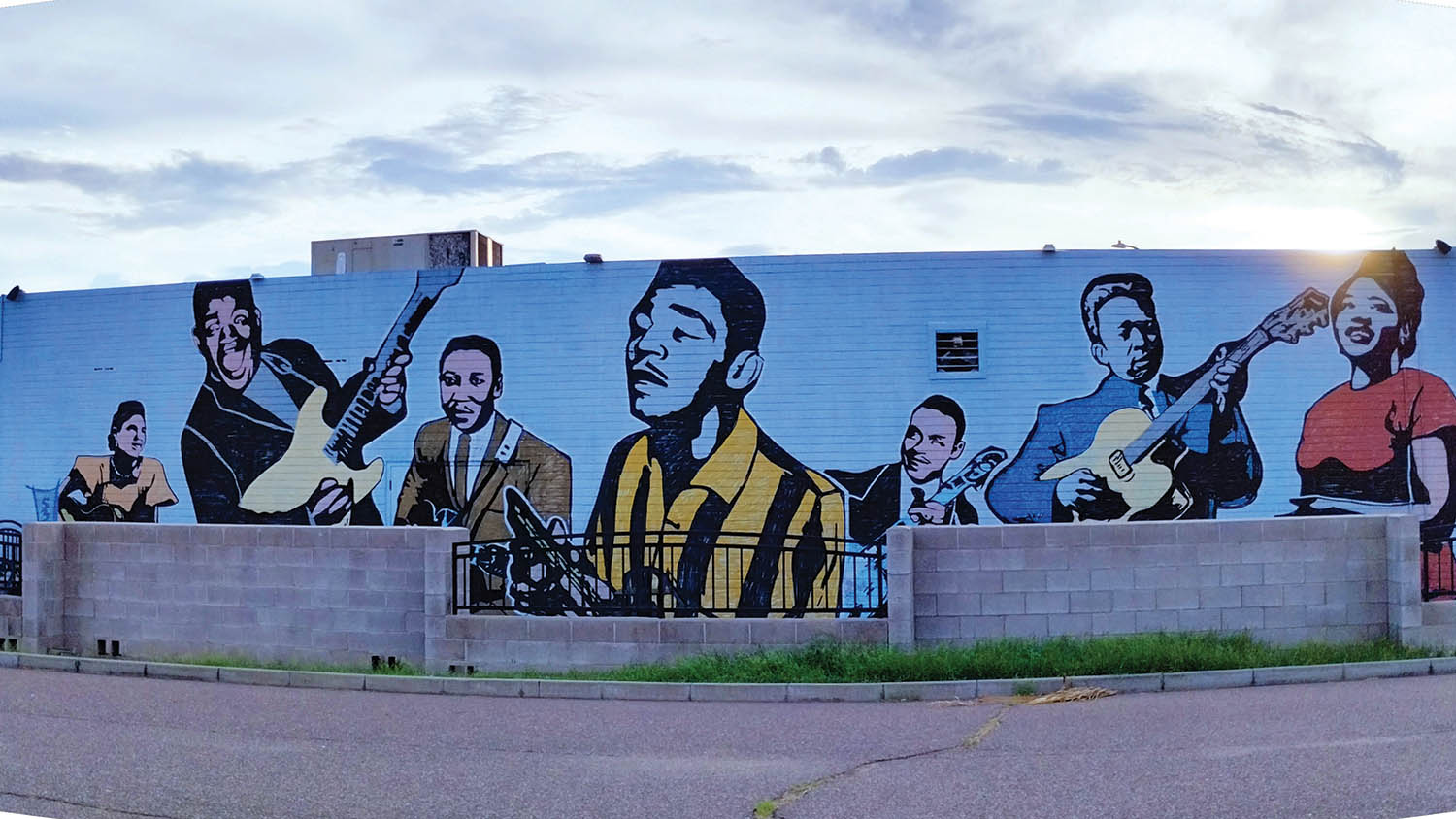
Phoenix residents can catch live music from local and national acts most nights at The Rhythm Room (photo by Kathryn M. Miller).
That venue, which Corritore took ownership of in September 1991 and established as The Rhythm Room, is still going strong, despite the challenges of the pandemic. He frequently takes the stage with his band and others, joining a who’s-who of musicians on his home stage over the years. But some of his performances elsewhere have been incredibly memorable.
“I got to do couple tours with Jimmy Rogers. Jimmy Rogers was Muddy Waters’ right-hand man.”
In high school, Corritore bought a 1950s recording of their music on the Chess Records label, “I’d listen that record and just loved it so much that I’d actually fall asleep dreaming about that and wondering if someday I’d play in a band that would sound something like that. I never even imagined that I’d actually get to work with that legendary artist and call him my friend.”
It is that kind of history and personal connection to blues music that Corritore brings to the airwaves for five hours every Sunday night on KJZZ during his “Those Lowdown Blues” show — something he has been doing since February 1984.
“It would be hard to overestimate Bob’s contribution to the blues,” said Marty Kool, a promoter, blues music DJ and fellow Arizona Blues Hall of Famer (Corritore was inducted in 1997; Kool in 2008).
The “Marty Kool’s Blues Review” hit the airwaves out of Tucson’s KXCI the same year as Corritore’s Lowdown show, and he, too, discovered the blues at an early age. For Kool, it was at the age of nine, tuning in at night with his crystal radio from his home in Iowa. He was able to pick up some of the Southern stations that were spinning rhythm and blues in the ‘50s — powerhouses of the day such as WLAC in Nashville, WDIA in Memphis, and KAAY out of Little Rock.
But what draws a kid from Iowa to the blues?
“Honesty is a big part of it,” Kool said. “The music itself, I mean, and there’s the lyrics and things are so honest and true. And relatable, because everybody’s had the blues.”
The music, Kool says, also is the foundation for so much of the music around today.
“Whether it’s country music, jazz music, bluegrass music, rock ‘n’ roll, rhythm and blues, mariachi music. And when you realize that root, and from that the tree grows and all these branches; everything comes off of that root. So, that’s really what keeps me drawn to the blues.”
Both he and Corritore continue to draw others to the genre in their own ways, but Kool says that, “Bob is unique. He’s a great harmonica player. He’s a nice, guy. He’s got that radio show… and he’s got the foresight to bring these real deal guys to town. When he brings these real deal guys like Henry Gray or John Primer or folks like that to town and then he’s got the foresight to take them into the studio, and get those r
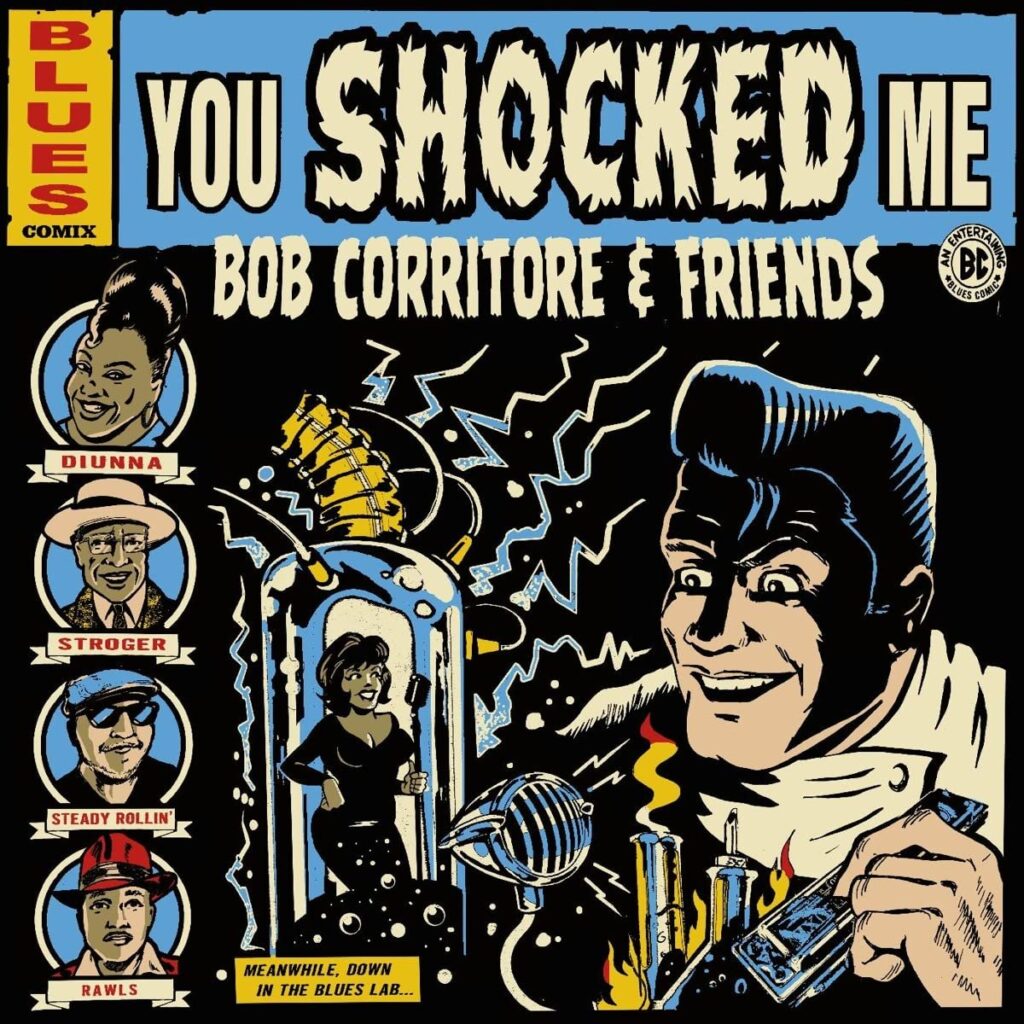
Bob Corritore is joined by some talented musical friends on his latest release, “You Shocked Me,” which is out Sept. 9.
ecordings done. That makes him one of the best in the country, as far as I’m concerned, for keeping the blues alive.”
Kool added, “Some people say, ‘Oh, the blues is dying,’ but it’s not. It hasn’t in the last 100 years. It waxes and wanes like everything does. But it’s important to keep that live music alive. Support live music and buy CDs. Downloads just don’t cut it money-wise for a musician.”
Whether catching shows live, tuning in on the radio or supporting artists through sales, music is an integral part of the human experience.
“Music, in general, allows life to make sense,” Corritore concluded. “There’s a sweet spot in music that transports us to a better place. And we, as performers, when we are able to create that and deliver that to an audience and the audience is getting it — there’s nothing better than that feeling.
“In this world, where there are all these frustrations and anger and people not wanting to get along, I think we can all agree on music. There’s something that connects us with music. It’s a beautiful bridge to our humanity.”
Corritore’s latest album, “You Shocked Me,” will be released Sept. 9, and Valley residents are invited to join him and some of his talented friends as he celebrates his 66th birthday with a night of Chicago blues, Saturday, Sept. 24, at The Rhythm Room.
For information, call 602-612-4981 or visit www.rhythmroom.com.

